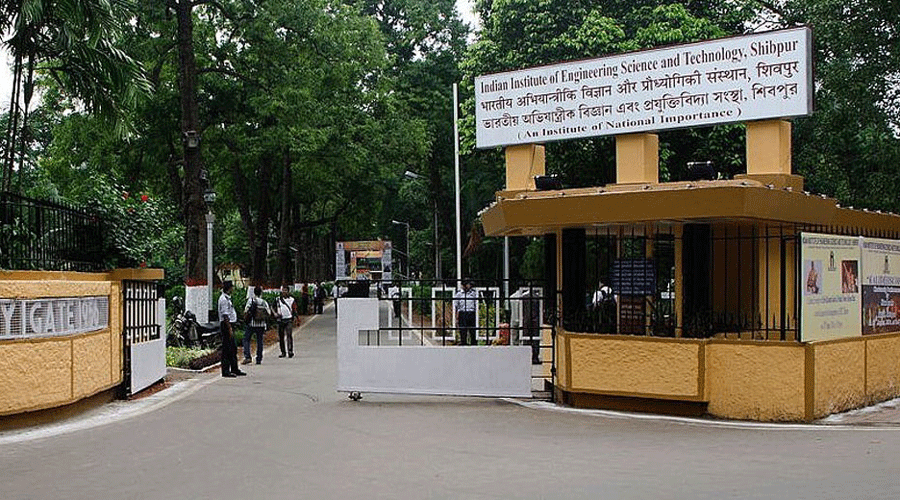The Global Alumni Association of IIEST, Shibpur, has started gathering feedback from the former students on ways to improve the institute’s standard.
The institute’s steady decline in National Institutional Ranking Framework (NIRF), an annual ranking exercise carried out by the education ministry, prompted the alumni to undertake the move.
The alumni was requested on July 7 to submit their feedback within July 20.
The institute had slipped to 27th position in the engineering category last year from its earlier rank of 19 in 2019 and 21 in 2020. While the feedback was being gathered, the ministry came up with this year’s ranking on Friday, revealing that IIEST has slipped to 40th position.
The president of the alumni association said while processing the feedback and sharing those with the institute, they would take into account the latest ranking.
“An insight in the NIRF score of IIEST, Shibpur, vis-à-vis the score of the top ten institutes in the country, clearly confirms at least two major deficiencies: i) Not mobilising the resources available to promote/achieve the academic and professional outcome;
and ii) Indifference towards network building, leading to a disgraceful score in peer perception,” the association’s president Anjana Ganguly Ray has written on its website while seeking participation in the “endeavour of enhancing NIRF/Global ranking” of IIEST, Shibpur.
She told The Telegraph on Sunday that these two major deficiencies must have played a role in the further decline of the rank this year and they are looking forward to receiving cooperation from the alumni in arresting this decline.
The alumni have been asked to specify through a Google form whether they want lend their support in areas like infrastructure and facilities planning, skill development and entrepreneurship, industry-institute partnership and student placement.
An assessment of the statistics uploaded on the website of the NIRF stats in teaching, learning and resources; research and professional practice; graduation outcomes; outreach and inclusivity and peer perception, IIEST has scored 60.11 (66.13 last year), 48.02 (47.54 last year), 67.41 (64.47 last year), 48.26 (49.70 last year) and 38.23 (42.36 last year), respectively.
An IIEST professor said, a comparative study underlines the institute’s poor show in four out of the five parameters that are considered by the ministry, triggering a further decline.
The erstwhile Bengal Engineering and Science University (BESU) was renamed Indian Institute of Engineering Science and Technology, Shibpur by the central government in March 2014.
In the letter addressed to the institute’s highest decision making body, the alumni association’s president had written: “The institute fraternity expected that the new status with a new structure of governance will bring larger funding, necessary to improve its academic standard and infrastructure and take our beloved institution to a new height. However, the performance of the institute, since being elevated to an INI (Institute of National Importance), has been below par consistently, which is pushing our Institute down the spiral of mediocrity”.
“Amidst the discouraging scenario, it is most disheartening to record the cold response of the institute towards the proposed initiatives of alums in addressing the crisis” the letter by Anjana Ganguly Ray read.
Calls to the IIEST director Parthasarathi Chakrabarti went unanswered.
